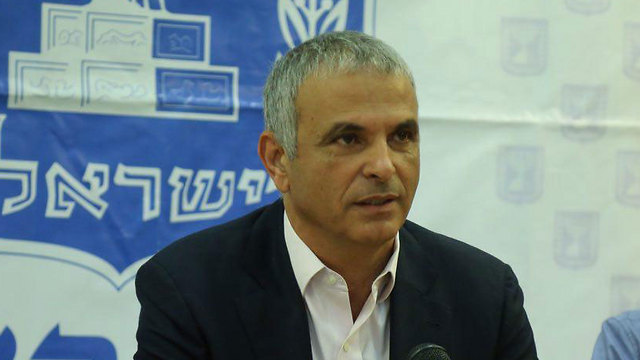
Coalition crisis ends, new broadcasting compromise announced
The threat of early elections has passed for now. The prime and finance ministers have announced a compromise to establish two broadcasting corporations: one for general matters and one for news. The IBA opposes this move.
The threat of early elections dissipated Thursday when Prime Minister Binyamin Netanyahu and Finance Minister Moshe Kahlon announced a compromise agreement to address concerns about the Israel Public Broadcasting Corporation (IPBC).
The compromise agreement, brokered by Finance Ministry Director General Shai Babad, Communications Ministry Director General Momo Filber and Ministers Yariv Levin and Tzachi Hanegbi, calls for a “new path” for public broadcasting in Israel, including a “general” broadcast corporation and a separate one for news and current events programming.
The new, separate news corporation is to begin broadcasting on May 15. Research programs and external content that had been planned for the IPBC will be cancelled.
Ongoing legislation to supervise the media has also been frozen as a result of the compromise.
The previous government, with Netanyahu’s support, had approved a plan to replace the Israel Broadcast Authority (IBA) with a new public broadcasting framework in 2014, but more recently the prime minister has voiced ferocious opposition to the Corporation.
Kahlon, speaking after the compromise was announced, told the press, “Since I took office, I have stood as a pillar of defense for democracy, the Supreme Court, and public funds. The agreement guarantees the freedom of the press and the freedom of expression.”
A few dozen IBA employees protested outside government offices in Tel Aviv while Kahlon spoke. A statement from the IBA announced their opposition to the compromise that claims that the deal results in “the establishment of a divided entity that can’t combine resources efficiently and cost-effectively as had been planned, and its result is wasting public funds.”
The minister added, “The fight over the past few days was a fight over principles; it wasn’t a fight over ego. As a result of the agreement, there won’t be any political influence. The politicians are unequivocally distanced; there will be no contact with politicians.
Coalition Chairman MK David Bitan (Likud), lauded the compromise, which he termed “a fair compromise” between the positions of his party and Kahlon.
Yohanan Plesner, President of the Israel Democracy Institute (IDI), and Dr. Tehilla Shwartz Altshuler, Director of IDI’s Media Reform Program said, “Prime Minister Benjamin Netanyahu tried to bring public broadcasting down to its knees and succeeded. Dozens of senior journalists who left previous employers to work at the new Israeli Public Broadcasting Corporation will lose their jobs, while the staff of the Israel Broadcasting Authority still don’t know their fate
"Netanyahu trampled a reform that was conducted with hard work by his government, and in so doing, he harmed every governmental and democratic process. But more than anything else, Netanyahu delivered the message that he is the ‘real boss’ of those who work in public broadcasting and to other media outlets he made clear who they need to serve."
Members of the parliamentary opposition were quick to denounce the agreement.
“Congratulations on creating the ladder you both needed to climb down,” mocked MK Nachman Shai (Zionist Union), a former director general of the IBA. “Everybody will be thrilled to climb down via this classic Israeli compromise. There is no public broadcasting arrangement like this one anywhere in the world.
“There won’t be an authority, there won’t be a corporation, there won’t be any (publicly funded) news coverage. Everybody loses, especially the Israeli public. They’ve demolished the IBA and replaced it with nothing.”
Moran Azulay, Itay Blumental and Ran Boker contributed to this report.
Parts of this article reprinted with permission from TPS












